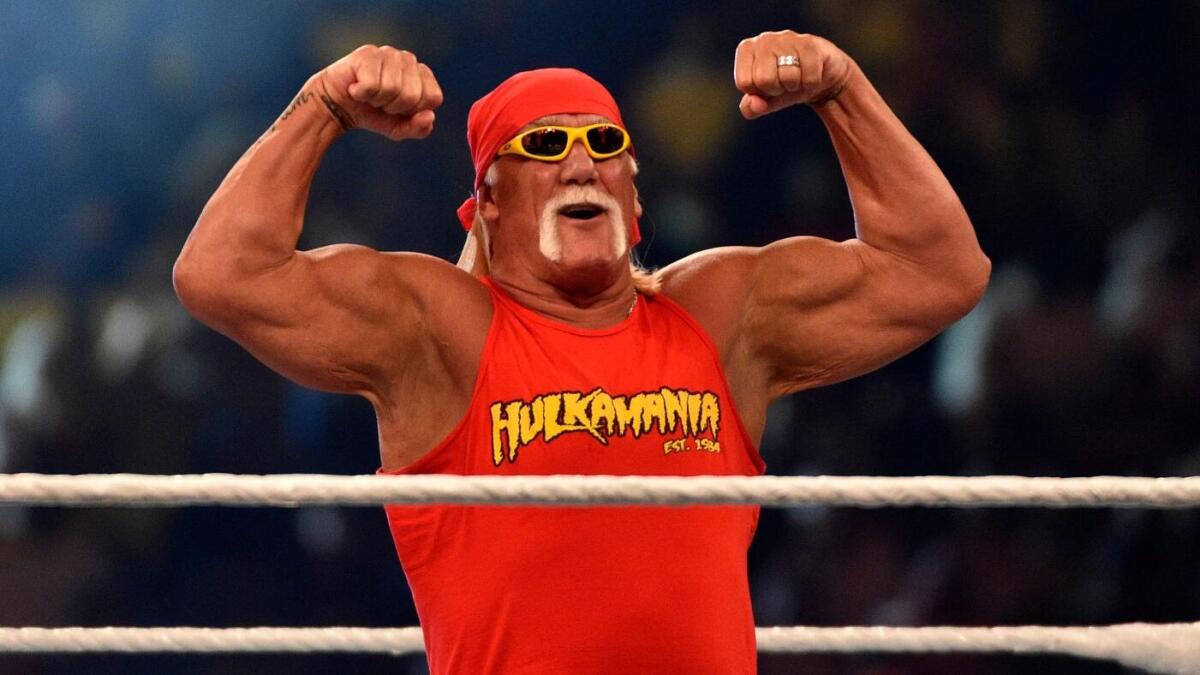The Passing of a Legend: A Look at Hulk Hogan’s Impact and Legacy
Introduction
The wrestling world has lost one of its brightest stars. Hulk Hogan, the larger-than-life icon who captivated audiences for decades, has passed away at the age of 71. The news of his death, following a cardiac arrest at his home in Clearwater, Florida, has sent shockwaves through the industry and beyond. Hogan’s legacy is one of unparalleled influence, both in and out of the ring. His impact on professional wrestling is immeasurable, and his cultural footprint extends far beyond the squared circle.
The Hulkamania Era: A Cultural Phenomenon
Hulk Hogan, born Terry Eugene Bollea, rose to fame in the 1980s, becoming the face of professional wrestling during its golden age. His character, a muscle-bound hero clad in red and yellow, was more than just a wrestler—it was a symbol of hope, strength, and perseverance. Hogan’s appeal was universal, transcending age, gender, and background. His catchphrases, such as “Whatcha gonna do, brother, when Hulkamania runs wild on you?” became part of the cultural lexicon, embedding themselves in the collective consciousness of a generation.
Hogan’s matches were not just sporting events; they were spectacles. His signature moves, like the running leg drop, became iconic, and his feuds with legends like “Rowdy” Roddy Piper, Andre the Giant, and “Macho Man” Randy Savage were the stuff of legend. These rivalries were not just about wrestling; they were about storytelling, drama, and the eternal battle between good and evil. Hogan’s ability to connect with fans on an emotional level was unparalleled, making him a hero to millions.
The Evolution of a Legend
Hogan’s career was marked by evolution and adaptation. In the mid-1990s, he made a controversial move to World Championship Wrestling (WCW), WWE’s main competitor. This decision was a turning point, not just for Hogan but for the wrestling industry as a whole. His arrival in WCW, along with other former WWE stars, fueled the “Monday Night Wars,” a ratings battle that captivated audiences and pushed the boundaries of professional wrestling.
In WCW, Hogan underwent a dramatic transformation, turning heel (villain) and forming the New World Order (nWo) with Kevin Nash and Scott Hall. The nWo storyline was a game-changer, injecting a dose of realism and edginess into the sport. Hogan’s ability to reinvent himself as a villainous figure demonstrated his versatility and willingness to evolve with the changing landscape of the industry. The nWo became a cultural phenomenon, appealing to a more mature audience and revitalizing Hogan’s career.
Controversies and Redemption
Despite his immense success, Hogan’s career was not without its controversies. His in-ring style, which some considered limited, and his backstage politics drew criticism. However, it was a scandal involving racist remarks that truly tested his legacy. The controversy led to his removal from the WWE Hall of Fame and a period of public condemnation. Yet, Hogan’s story is one of redemption. He issued a public apology and worked to atone for his actions, eventually being reinstated into the WWE Hall of Fame in 2018.
Hogan’s journey from celebrated hero to controversial figure and back to redemption offers a complex and nuanced portrait of a man who lived his life in the public eye. His story serves as a reminder that even the most iconic figures are not immune to mistakes, but it is their ability to learn, grow, and seek redemption that defines their legacy.
Tributes and Reactions: An Industry Mourns
The news of Hogan’s death has prompted an outpouring of tributes from across the wrestling world and beyond. Fellow wrestlers, including Ric Flair, Triple H, and Jake Roberts, have shared emotional messages, praising Hogan’s contributions to the industry and expressing their condolences to his family. Ric Flair, a longtime rival and friend of Hogan’s, shared a touching message, expressing his shock and sadness at the news. Flair acknowledged Hogan’s impact on his career and the wrestling industry, calling him a true legend.
WWE issued a statement acknowledging Hogan’s passing and celebrating his career achievements. The company recognized Hogan as one of the most recognizable and influential figures in wrestling history. The reaction to Hogan’s death underscores the profound impact he had on the wrestling industry and popular culture. His name is synonymous with professional wrestling, and his legacy will continue to inspire future generations of performers.
A Lasting Legacy: More Than Just a Wrestler
Hulk Hogan was more than just a wrestler. He was a cultural phenomenon, a symbol of American strength and charisma. His influence extended beyond the wrestling ring, shaping popular culture and inspiring countless individuals. His character, Hulk Hogan, represented the embodiment of the American dream—a hardworking, determined individual who overcame adversity to achieve success. His message of positivity, hard work, and believing in oneself resonated with audiences of all ages and backgrounds.
Hogan’s legacy will continue to live on through his matches, his movies, and the countless memories he created for fans around the world. He will be remembered as one of the greatest and most influential figures in the history of professional wrestling. His impact on the industry is undeniable, and his name will forever be etched in the annals of wrestling history as a true icon and a legend.
The Final Leg Drop: An End of an Era
Hulk Hogan’s death marks the end of an era in professional wrestling. He was the face of the industry during its most popular period, and his impact will be felt for generations to come. While his life was not without its controversies, his contributions to the world of sports entertainment are undeniable. Hulk Hogan’s name will forever be etched in the annals of wrestling history as a true icon and a legend. Rest in peace, Hulk.











